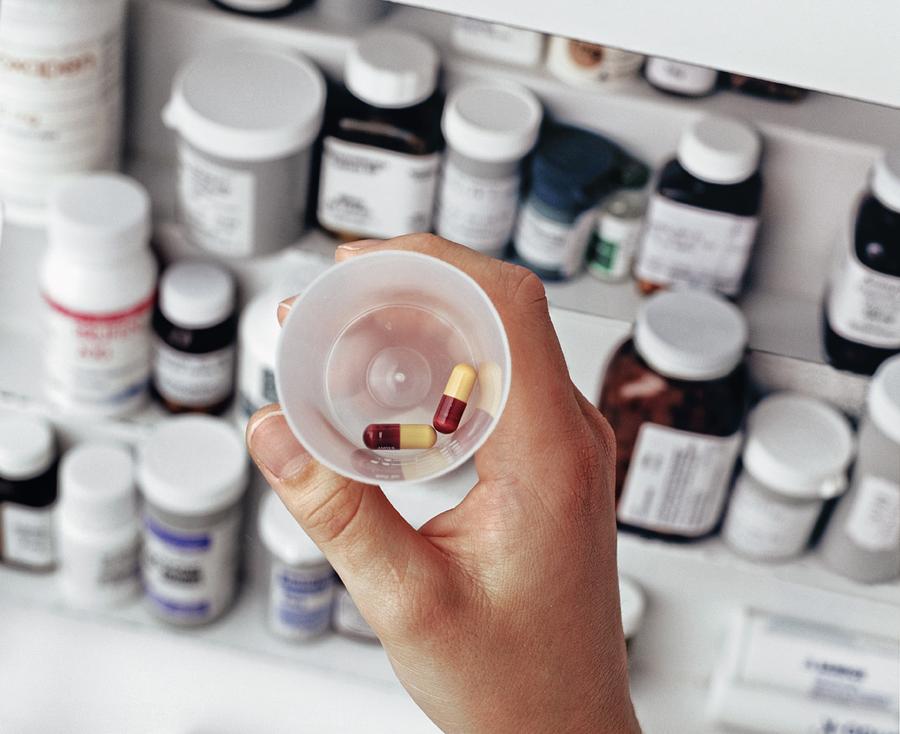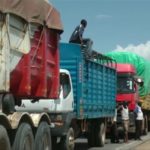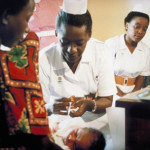By Dr Anzo William Adiga
Discussions about Uganda’s journey towards attaining middle income status by 2020 have been common in the recent past. Calls have been made for more economic, political and social actions to be taken if that target is to be achieved. For the medical fraternity, collectively maintaining the health of Ugandans who are key in contributing towards the attainment of the middle income status target, should be paramount.
As a build up to middle income status, there are several key decisions which if well taken care of, can accelerate our economic development. It can’t be ignored that government of Uganda has made efforts to ensure accessible and affordable healthcare for Ugandans. However, more still needs to be done.
The World Health Organisation lists six building blocks for health system strengthening, namely; Improve Service Delivery, Health Financing, Health Infrastructure, Human Resource for Health, Access to Medicines, and Good Healthcare Leadership/Governance.
I’ll limit my argument to two key areas of human resource for health and access to medicine and supplies, as key contributors to a healthy population and strong healthcare sector that Uganda needs to attain its dream of middle income status.
First, it is not news that there is rampant stock out of live-saving medical supplies and drugs in government health facilities. It’s not in doubt that there is some degree of theft of drugs being reported by the Health Monitoring Unit of State House. However, it’s important to note that the leading hindrance to emergency surgical care is lack of medical supplies. This traumatises the health care giver who sees life going but cannot do much to save it.
Personally, I experienced such trauma in the past when a mother’s uterus raptured while I waited for the relatives to buy supplies such as sutures and IV fluids. If the hospital had the supply, such incident would have been avoided. It’s not enough though to have free access to healthcare, free medical supplies should match the demand on the ground. This is not the case in Uganda.
The government should increase supply of essential medicines and supplies required for live saving interventions. Adequate medical supplies should be accompanied by accountability and monitoring mechanisms to avoid theft and reckless use.
Another bitter fact is that the healthcare demand of Ugandans is higher than what government can provide without cost sharing, especially for the non-emergency conditions. It would be wise to reserve the current supplies for emergency interventions while elective or non-emergency interventions are cost shared transparently using a Ministry of Health recommended rate. This strategy would ensure the emergency reserve is not depleted and Ugandans would be prepared that if I go for non-emergency treatment, I have to share costs and demand receipt for it. It will also eliminate the wrong elements who ask for “under the table” payment or extortion as it is happening now.
Secondly, there is limited, demotivated and ill-equipped health workforce in Uganda. Despite going through a strenuous, lengthy and difficult training, health workers are not well placed to save the life of Ugandans due to poor and few equipment and supplies, let alone other motivation like housing and working environment. To motivate the young medics who have trained for six years with some paying over Shs70 million in private universities, there are several approaches Uganda can adopt to keep medical workers motivated. I’ll highlight just five:
First, the Uganda Medical Association (UMA) wrote to the Parliament of Uganda in August 2016, petitioning it for allowances for long working hours, medical risk allowances, among others. The allowances UMA asked for are really justified since the nature of medical work requires health workers to work past the recommended eight hours a day; including weekends and public holidays. The Parliament of Uganda needs to pay attention urgent to “The Mungherera Petition” and implement the duty facilitation allowance.
Secondly, there is need for tax exemption on imported cars for medical workers. It’s known that medical workers spend most of their time in health facilities. Very few use their vehicles, and if they do, it’s to dash for a medical emergency, or even to transport patients who need urgent care. The government should exempt tax on imported vehicles for each medic once every five to eight years with specific number plates to avoid cheap resale and abuse of such offer.
Thirdly, there’s need to regularise medical internship with proper terms and conditions. Medical internship has been undergoing challenges with irregular pay and unclear regulations. A proper internship policy needs to be developed with full involvement of key stakeholders such as the Ministry of Health, UMA, the Pharmaceutical Society of Uganda and Nurses and Midwives Union, etc.
Fourthly, there is increasing need amongst Ugandan medical graduates to specialise in given fields and yet the cost of training a specialist is very high, hindering others from enrolling. A deliberate effort should be made by government to pay these master students who will be key in managing the healthcare in Mulago National Referral Hospital and other teaching hospitals across the country.
Finally, there’s need for affordable housing for medical workers. This can take many angles. First, ensure medical staff get accommodated near health facilities during their working years which will address the issue of absenteeism. Another approach would be Value Added Tax exemption for medical workers to allow construction of affordable houses just like it is for military officers in the UPDF and police officers. This will motivate them to serve Ugandans with full interest and energy.
A well implemented reform in human resource for health will go a long way in reducing both external and internal brain drain of health workers.
Dr Adiga is a medical practitioner and Branch Chair for Uganda Medical Association (West Nile Branch)








